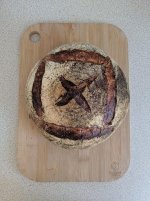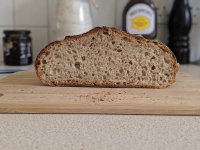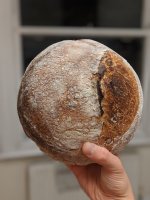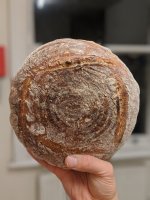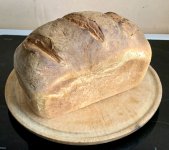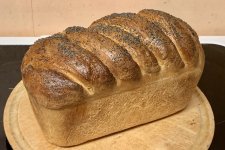you are transplanting 3-4tbs(100g) of it and adding it to a new 75gflour/100g water mix ? rather than just adding flour/water to existing container ?not really much activity after day 4 and even feeding it twice a day hasn't done much;
that's how I refresh/grow it
... if you add a relatively small % of flour/water to existing container it maybe constrained by waste/acid products of earlier feed.


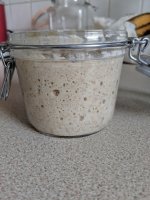
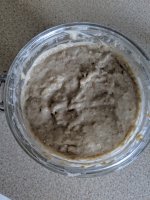

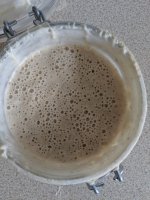
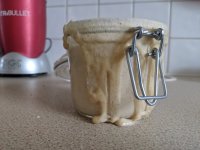
 should be good.
should be good.